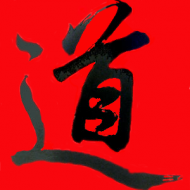The Chinese believes in striking a balance between yin and yang. In the chills of winter, you need to take care of the yang aspect of your body. Ye Jun shares some pointers.
As the coldest winter in the last 28 years pushes the mercury to dip to a low of -15 C in Beijing, traditional Chinese medicine doctors share some tips to keep warm and fit to cope with the chilly days. “Winter is a time to take good care of the yang aspect of the body,” says Wang Yuntao, a traditional Chinese medicine doctor with Beijing Dongwen Clinic. According to TCM theory, the balance of yin (cool, calming side of the body) and yang (hot, stimulating side of the body) energy in the body plays a vital role to ensure good health. Once the balance is impaired by factors such as emotions, improper diet and overwork, the body will fall sick.
The function of yang can be compared to a cup of hot water: Inside a warm environment, it stays warm longer; but inside a cold environment, it turns cold faster. The yang factor is the ability to keep warm, Wang explains.
“The most important rule of keeping fit in winter is not to exert yourself, either physically or mentally,” the doctor says.
Wang says to understand the rules of nature better, observe a tree’s growth cycle. In spring it grows with dew; in summer when yang energy is abundant, it grows fast.
In winter, like the tree, yang energy penetrates the human body to warm it up, leaving the surface feeling cold.
“Winter is therefore a time to conserve yang energy and not to waste it,” he says. “Otherwise in spring, the body will lack the strength to grow.”
Wang says Chinese have a tradition of adapting to seasonal changes and following certain rules to stay fit. “But foreigners don’t. That’s the cultural difference,” he says.
Wang believes that Caucasians have a different physical build compared to Chinese, and a different diet that also contributes to different physical reactions to seasonal changes. He says Chinese people are more sensitive to weather changes.
“It might seem strange for foreigners to see us Chinese drinking hot water all the time. It is equally surprising for Chinese to see some Caucasians in just shorts and T-shirt during winter,” he says.
Wang stayed in the United States for half a year, investigating the state of Chinese medicine there, and teaching tai chi. He studied the differences between Chinese and American diets and living habits.
“I noticed that Americans eat more deep-fried and roasted foods. I think that might bring extra heat to the stomach and make them want to drink ice water,” he says.
“Chinese people for many generations have eaten more green vegetables and fruits. Their stomachs and spleens tend to be a tad weak and afraid of the cold.”
The doctor also advises people to sleep early and wake up late during winter.
“Staying up late hurts the kidneys,” Wang says. His suggestion is to sleep from 9 pm to 8 am, until the sun rises, if possible.
On the other hand, eat food that enhances yang energy and beats the cold, such as lamb, and use ginger while cooking. “But don’t over do it, or you can get excessive heat,” Wang says.
The Chinese tradition is to eat turnips in winter, which can help to clear up the excessive heat.
The doctor suggests moderate physical exercise in winter. One should shed just a little sweat, but not too much. Otherwise it hurts the yang.
Tai chi, jogging and walking are good. Hot spring is good, but not sauna, Wang says.
Finally, he says people should also conserve energy spiritually.
“Recollect your thoughts, do sitting meditation, rest more, and cut down on very exciting entertainment,” he suggests.
In such harsh winter, those with heart and lung problems should take particularly good care of themselves. That’s because the coldness will contract the blood vessels. For people with such conditions, they should take particular care to keep warm.
Those with asthma and respiratory problems should pay attention to keeping the chest, back and feet warm.
TCM doctors have some traditional herbs to beat the cold.
An ancient recipe is to drink white liquor with ginseng and huangqi, or astragalus herb. But it is not good for people with excessive heat or abundant energy.
The liquor should be consumed in the morning. In the evening, people need to eat qiju dihuangwan, a herbal medicine, to dispel possible excessive heat.
One of such warming and moistening food is babaozhou, eight-treasure congee. The congee contains a number of ingredients: The dried longan, jujube and millet have warming properties, while rice, yellow beans, mung beans and rock sugar are moistening.
Xu Wenbo, general manager and doctor with Beijing Dongwen Clinic, says some people might not feel cold, but only because their senses have become blunt.
“Some patients we’ve seen recently have had foot problems and weak kidneys, which lead them to get up to urinate often at night. But they still wear only one pair of trousers, and say they don’t feel cold,” she says.
“There is a Chinese idiom that goes: Not conserving energy in winter is certain to lead to illness in the coming spring. So, beware,” she warns.
Source: http://www.chinadaily.com.cn/cndy/2013-01/23/content_16158586.htm
